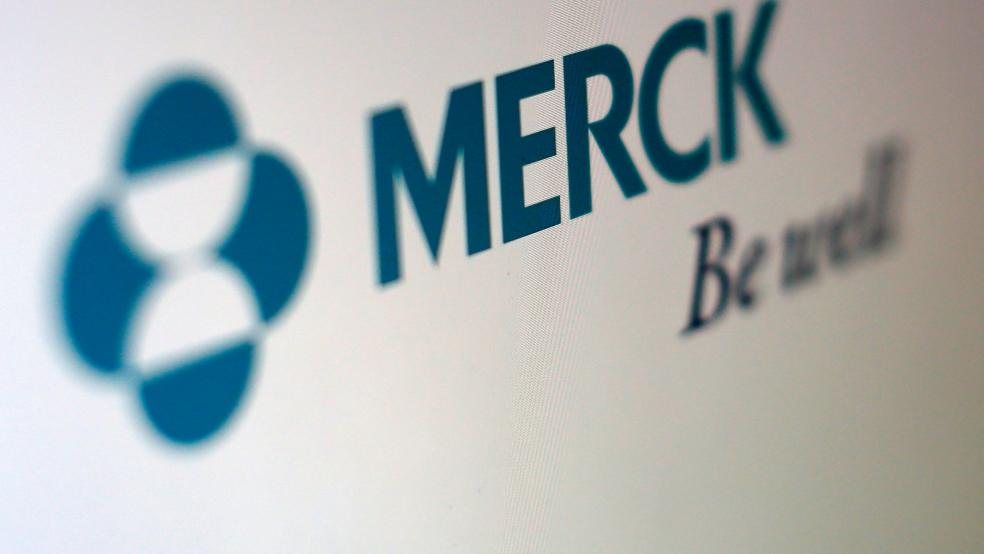Pharmaceutical giant Merck on Tuesday sued the U.S. government over the federal law enacted last year that allows Medicare to negotiate certain prescription drug prices with manufacturers.
In the lawsuit, filed in federal district court, Merck argues that the drug price negotiations, established as part of the Inflation Reduction Act, will undercut innovation and violate the Constitution. The company cites the Fifth Amendment requirement that the government pay “just compensation” if it takes property for public use and claims that the Inflation Reduction Act would allow the government to take Merck’s patented innovations without paying the drugs’ fair value.
The company also argues that the new law violates the company’s First Amendment right to free speech by creating the misleading impression that the company is voluntarily agreeing to negotiations that Merck calls a “sham” and “tantamount to extortion.”
Merck argues that the government could have simply imposed price caps or structured negotiations in a way that allowed drug companies to refuse to contract with Medicare if they couldn’t agree on a price. It argues that lawmakers instead chose a convoluted structure for political purposes. “The scheme’s aim is to deceive the American public,” the lawsuit charges. “Its forced messaging promotes the (false) impression that manufacturers acquiesce in—indeed, agree with—prices imposed by HHS decree.”
The White House pushed back on the suit. “Big Pharma regularly forces Americans to pay many times what they do customers in other countries for the exact same medicines," White House spokeswoman Karine Jean-Pierre said in a statement cited by Reuters. "We are confident we will succeed in the courts. There is nothing in the Constitution that prevents Medicare from negotiating lower drug prices.”
Why it matters: After a vigorous public relations and lobbying effort, this is the pharmaceutical industry’s first attempt at challenging a law it despises — one that President Biden has highlighted repeatedly as a victory in a long-running battle to lower prescription drug prices.
In his Oval Office address last Friday night, Biden mentioned the drug price negotiations as a key legislative accomplishment he preserved in his deal with House Speaker Kevin McCarthy to raise the debt limit. Biden repeated an oft-used line that last year’s law “finally beat Big Pharma,” something the president says he’s been trying to do for more than 30 years.
The new law allows the Secretary of Health and Human Services to negotiate prices of a very limited number of drugs to be selected from among the 50 drugs with the highest spending in Medicare’s Part D prescription drug program and the 50 doctor-administered drugs with the highest spending in Medicare Part B. The program will start with 10 Part D drugs for 2026 and ramp up from there, adding up to 15 more Part D drugs for 2027, up to 15 Part B or Part D drugs for 2028 and up to 20 more Part B or Part D drugs each year after that. The law also includes an excise tax to be levied on companies that walk away from the negotiation process.
The Congressional Budget Office has estimated that the negotiations enacted last year will save Medicare nearly $100 billion over 10 years. It has also said that the drug pricing measures in the Inflation Reduction Act, which go beyond just the Medicare negotiations, would modestly reduce the number of new drugs brought to market over time.
The government says it will announce the first 10 drugs chosen for price negotiations by September 1, 2023. Biden has said he hopes to expand the price negotiations to have them cover more drugs.
Merck said in its filing that its diabetes drug Januvia is expected to be subject to the first round of negotiations, while another diabetes drug, Janumet, and the company’s top-selling drug, the cancer treatment Keytruda, are expected to be subject to negotiations in following cycles. Keytruda generated nearly $21 billion in revenue for Merck last year, accounting for more than a third of the company’s $59.3 billion in worldwide sales. Merck recorded $14.5 billion in profits last year, up from $12.3 billion in 2021.
The bottom line: Legal experts told Reuters that Merck’s constitutional grounds are weak — but the case could be headed for the Supreme Court, and other challenges from the pharmaceutical industry are likely to follow.





